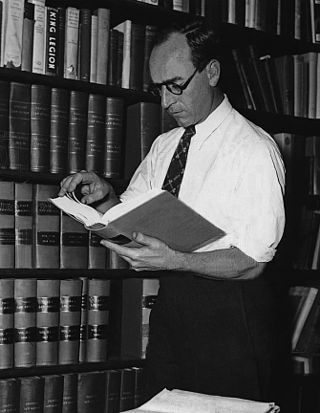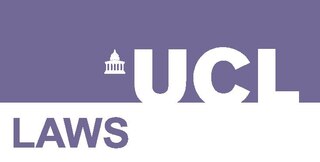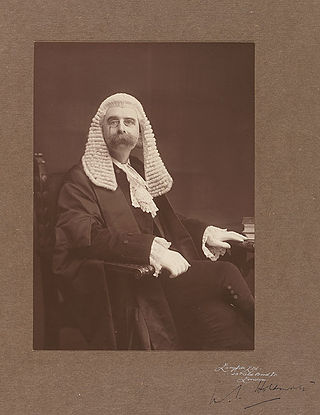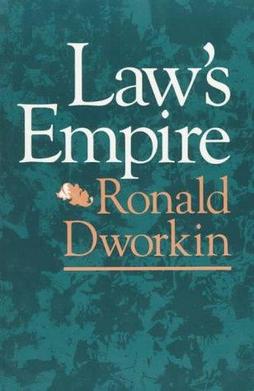Related Research Articles

Comparative law is the study of differences and similarities between the law of different countries. More specifically, it involves the study of the different legal "systems" in existence in the world, including the common law, the civil law, socialist law, Canon law, Jewish Law, Islamic law, Hindu law, and Chinese law. It includes the description and analysis of foreign legal systems, even where no explicit comparison is undertaken. The importance of comparative law has increased enormously in the present age of internationalism, economic globalization, and democratization.
Bachelor of Civil Law is the name of various degrees in law conferred by English-language universities. The BCL originated as a postgraduate degree in the universities of Oxford and Cambridge; at Oxford, the BCL continues to be the primary postgraduate taught course in law. It is also taught as an undergraduate degree in other countries. The reference to civil law was not originally in contradistinction to common law, but to canon law, although it is true that common law was not taught in the civil law faculties in either university until at least the second half of the 18th century. However, some universities in English-speaking countries use the degree in the former sense.
Jus commune or ius commune is Latin for "common law" in certain jurisdictions. It is often used by civil law jurists to refer to those aspects of the civil law system's invariant legal principles, sometimes called "the law of the land" in English law. While the ius commune was a secure point of reference in continental European legal systems, in England it was not a point of reference at all. The phrase "the common law of the civil law systems" means those underlying laws that create a distinct legal system and are common to all its elements.

A madhhab refers to any school of thought within Islamic jurisprudence. The major Sunni madhāhib are Hanafi, Maliki, Shafi'i and Hanbali. They emerged in the ninth and tenth centuries CE and by the twelfth century almost all jurists aligned themselves with a particular madhab. These four schools recognize each other's validity and they have interacted in legal debate over the centuries. Rulings of these schools are followed across the Muslim world without exclusive regional restrictions, but they each came to dominate in different parts of the world. For example, the Maliki school is predominant in North and West Africa; the Hanafi school in South and Central Asia; the Shafi'i school in East Africa and Southeast Asia; and the Hanbali school in North and Central Arabia. The first centuries of Islam also witnessed a number of short-lived Sunni madhhabs. The Zahiri school, which is considered to be endangered, continues to exert influence over legal thought. The development of Shia legal schools occurred along the lines of theological differences and resulted in the formation of the Ja'fari madhhab amongst Twelver Shias, as well as the Isma'ili and Zaidi madhhabs amongst Isma'ilis and Zaidis respectively, whose differences from Sunni legal schools are roughly of the same order as the differences among Sunni schools. The Ibadi legal school, distinct from Sunni and Shia madhhabs, is predominant in Oman. Unlike Sunnis, Shias, and Ibadis, non-denominational Muslims are not affiliated with any madhhab.

Ronald Myles Dworkin was an American legal philosopher, jurist, and scholar of United States constitutional law. At the time of his death, he was Frank Henry Sommer Professor of Law and Philosophy at New York University and Professor of Jurisprudence at University College London. Dworkin had taught previously at Yale Law School and the University of Oxford, where he was the Professor of Jurisprudence, successor to philosopher H. L. A. Hart.

Herbert Lionel Adolphus Hart was an English legal philosopher. One of the most influential legal theorists of the 20th century, he was instrumental in the development of the theory of legal positivism, which was popularised by his book, The Concept of Law. Hart's contributions focused on the nature of law, the relationship between law and morality, and the analysis of legal rules and systems, introducing concepts such as the "rule of recognition" that have shaped modern legal thought.

Zināʾ (زِنَاء) or zinā is an Islamic legal term referring to unlawful sexual intercourse. According to traditional jurisprudence, zina can include adultery, fornication, prostitution, sodomy, incest, and bestiality. Zina must be proved by testimony of four Muslim eyewitnesses to the actual act of penetration, confession repeated four times and not retracted later. The offenders must have acted of their own free will. Rapists could be prosecuted under different legal categories which used normal evidentiary rules. Making an accusation of zina without presenting the required eyewitnesses is called qadhf (القذف), which is itself a hudud offense.

Sir Frederick Pollock, 3rd Baronet PC, FBA was an English jurist best known for his History of English Law before the Time of Edward I, written with F.W. Maitland, and his lifelong correspondence with US Supreme Court Justice Oliver Wendell Holmes. He was a member of the Cambridge Apostles.
Principles of Islamic jurisprudence are traditional methodological principles used in Islamic jurisprudence (fiqh) for deriving the rulings of Islamic law (sharia).

Karl Nickerson Llewellyn was an American jurisprudential scholar associated with the school of legal realism. The Journal of Legal Studies has identified Llewellyn as one of the twenty most cited American legal scholars of the 20th century.
Leslie John Green is a Scottish-Canadian legal scholar specialising in jurisprudence. He is Professor of the Philosophy of Law and Fellow of Balliol College, Oxford University, and Professor of Law and Distinguished Faculty Fellow at Queen's University, Kingston. A legal positivist, his research also focuses on political philosophy and constitutional theory.

The UCL Faculty of Laws is the law school of University College London (UCL), itself part of the federal University of London. It is one of UCL's 11 constituent faculties and is based in London, United Kingdom.

The sociology of law, legal sociology, or law and society is often described as a sub-discipline of sociology or an interdisciplinary approach within legal studies. Some see sociology of law as belonging "necessarily" to the field of sociology, but others tend to consider it a field of research caught up between the disciplines of law and sociology. Still others regard it as neither a subdiscipline of sociology nor a branch of legal studies but as a field of research on its own right within the broader social science tradition. Accordingly, it may be described without reference to mainstream sociology as "the systematic, theoretically grounded, empirical study of law as a set of social practices or as an aspect or field of social experience". It has been seen as treating law and justice as fundamental institutions of the basic structure of society mediating "between political and economic interests, between culture and the normative order of society, establishing and maintaining interdependence, and constituting themselves as sources of consensus, coercion and social control".

Sir William Searle Holdsworth was an English legal historian and Vinerian Professor of English Law at Oxford University, amongst whose works is the 17-volume History of English Law.
Roger B. M. Cotterrell is the Anniversary Professor of Legal Theory at Queen Mary University of London and was made a fellow of the British Academy in 2005. Previously he was the Acting Head of the Department of Law (1989–90), Head of the Department of Law (1990-1), Professor of Legal Theory (1990–2005) and the Dean of the Faculty of Laws (1993-6) at Queen Mary and Westfield College, University of London.

Durham Law School is the law school of Durham University in Durham, England. In 2022, Durham Law was ranked 5th in the UK in a league table which averaged the rankings of the Complete University Guide, The Guardian and the Times University League Table. Durham Law School is ranked 42nd in the world for law in the 2023 Times Higher Education ranking and 46th in the world for law by the 2023 QS ranking.
Harold John Cook is John F. Nickoll Professor of History at Brown University and was director of the Wellcome Trust Centre for the History of Medicine at University College, London (UCL) from 2000 to 2009, and was the Queen Wilhelmina Visiting Professor of History at Columbia University in New York during the 2007–2008 academic year.
The term legal transplant was coined in the 1970s by the Scottish legal scholar W.A.J. 'Alan' Watson to indicate the moving of a rule or a system of law from one country to another. The notion of legal transplantation is diffusionism-based and according to this concept most changes in most legal systems occur as the result of borrowing. As maintained by Watson, transplantation is the most fertile source of legal development.
Alexander Falconer Murison was a Scottish academic who was professor of Roman law and jurisprudence at University College, London and at the University of Oxford. He was a prolific writer for newspapers and journals in a wide variety of subjects with comparatively few publications in his specialism of Roman Law.

Law's Empire is a 1986 text in legal philosophy by Ronald Dworkin, in which the author continues his criticism of the philosophy of legal positivism as promoted by H.L.A. Hart during the middle to late 20th century. The book introduces Dworkin's Judge Hercules as an idealized version of a jurist with extraordinary legal skills who is able to challenge various predominating schools of legal interpretation and legal hermeneutics prominent throughout the 20th century. Judge Hercules is eventually challenged by Judge Hermes, another idealized version of a jurist who is affected by an affinity to respecting historical legal meaning arguments which do not affect Judge Hercules in the same manner. Judge Hermes' theory of legal interpretation is found by Dworkin in the end to be inferior to the approach of Judge Hercules.
References
- ↑ "Twining, William Lawrence", Who's Who (online edition, Oxford University Press, December 2017). Retrieved 18 June 2018.
- ↑ http://www.ucl.ac.uk/laws/academics/profiles/index.shtml?twining University College London - biographical entry William Twining (Accessed Dec 2010)
- ↑ http://www.ucl.ac.uk/laws/academics/profiles/twining/ALICANTEINTERVIEW10Jan2010.pdf Raymundo Gama (2010) Interview with William Twining, UCL (Accessed Dec 2010)